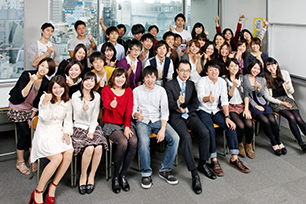Akira Shimizu, Professor, Faculty of Business and Commerce
Your head is for thinking, not for combing
Research area: Consumer behavior
Number of students: 19 fourth-year students and 20 third-year students. The number of males to females is almost proportional.
The objective of my seminar class is to explain marketing strategies through the behavior of consumers, the main targets of marketing.

Students who have mastered the art of quickly and accurately processing fixed, run-of-the-mill assignments given to them since elementary school seem to be bewildered at first by the learning style of my seminar: finding issues for oneself, thinking about those issues, and solving them. This is like choosing a good driver who has only ever used a car navigation system to get to his destination doing exactly as the machine says without thinking and without causing accidents, and then handing this driver a map and telling him to find his own way. He would think that finding the route is too difficult. The title of this article is a phrase that I often tell my students in such circumstances.
However, impressively enough, students naturally learn ways to find a problem on their own, to think about it, and to solve it after working on a few assignments. It is also interesting that as they gain experience, not only does the quality of their output improve, but they also begin to show a sense of competition in their presentations against other groups. When they come up with a solution to solve a problem and are determined not to lose to their rivals, class activities evolve from being compulsory to voluntary, and I can actually see their thinking and problem-solving skills improve dramatically through this change in motivation. This seems to be the reason my students proudly introduce my class to prospective students as demanding in a good way.
My seminar class focuses on active participation in group work and can be noisy, but this is how students stumble upon interesting literature that I know nothing about or find free software useful for analysis. In front of them, I try to look clam and might even give them a job well done, but quite often I am actually blown away by their abilities. It makes me realize the Keio University spirit of hangaku hankyo or "learning while teaching, and teaching while learning." These moments make me feel a little chagrined, but at the same time a little happy, too.
The biggest event in our seminar class is an intercollegiate debate held every year in early December. I hope that my students form lifelong relationships with others through these types of activities.
Student's Voice
Kenta Annaka, Third-year Student,
Faculty of Business and Commerce
Uncovering the mechanism of shopping behavior
How do consumers choose commodities to purchase? We usually shop without thinking much, but what are our actual thoughts behind our behaviors? In Professor Shimizu's seminar class, we study marketing in order to uncover these mechanisms. Particularly, we look at consumer behavior. Our research projects are not easy, but this difficulty helps us gain not only knowledge in marketing, but also logical thinking and explanatory skills, both of which will prove useful in the real world. Lectures held by actual company employees involved in marketing afford us opportunities to see how marketing theories are actually used in business. But above all, this seminar class has a wonderful environment where we can enjoy studying with classmates as well as support each other as we move forward with our research.
*Position titles, etc., are those at the time of publishing.
